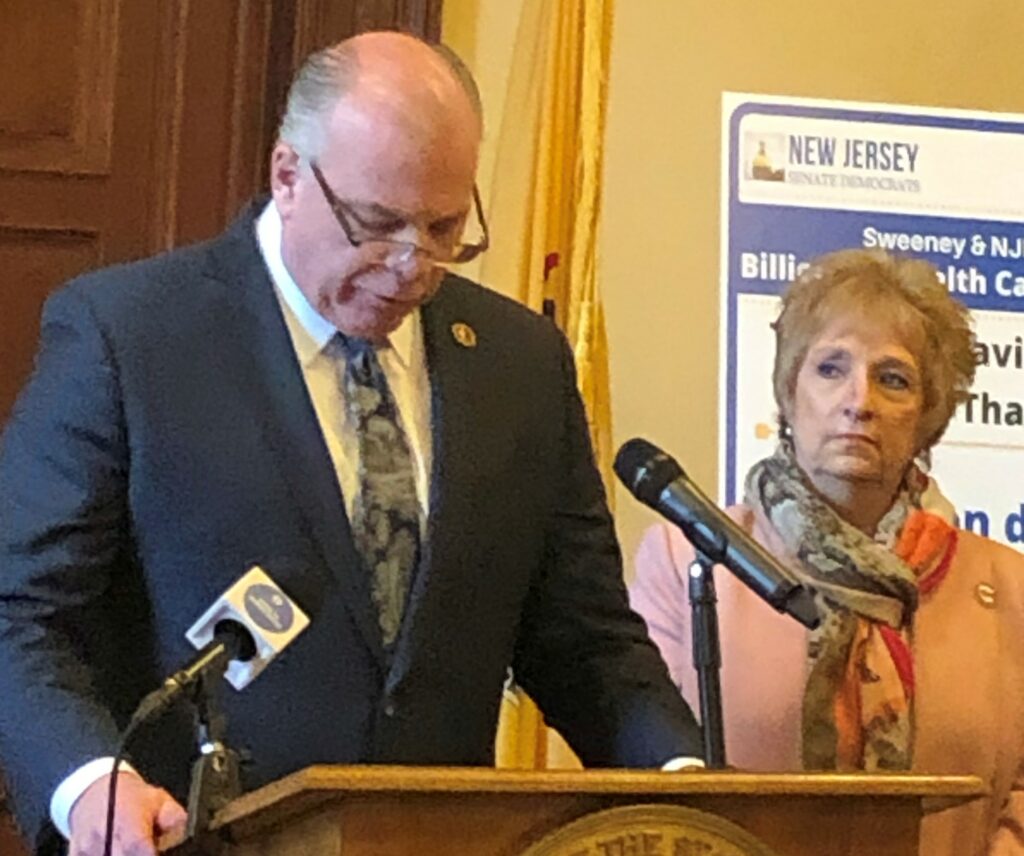An InsiderNJ Drill-Down on the Politics of the Sweeney- NJEA Deal
Listen to audio version of this article

TRENTON - Marie Blistan, the president of the state teachers' union (NJEA), summed up the day this way:
"We're standing side-by-side and we're both smiling," she said, referring to Senate President Steve Sweeney, her companion for a Monday morning press conference.
Sweeney called it a "win-win" for New Jersey, its taxpayers and members of the New Jersey Education Association.
The celebration was about an agreement between Sweeney and the union that is projected to save more than $1 billion in health benefit costs annually. That breaks down to a savings of $670 million for school districts, which provide health insurance for their employees, and $403 million overall in reduced employee contributions.
Here's a cautionary observation. The numbers are estimates and no detailed breakdown was available. But that should come soon. Sweeney said he wants to move a number of bills codifying the changes through the Senate by the end of the month. Of course, the Assembly also will have to act and the governor will have to sign the bills for this to became reality. Everyone was upbeat about that today, hoping that the changes will be ready to take effect by the beginning of the 2020-21 school year on July 1.
First some words about the politics.
The NJEA long has been described as the "most influential public union in the state." That could be, but it doesn't mean it always gets what it wants.
The union was in open warfare with Chris Christie during his time in Trenton. It was Christie, who with considerable help from Sweeney, pushed through a benefits reform package in 2011 that increased pension and health benefit contributions for virtually all employees.
So enraged was the NJEA at Sweeney that not too long age, it funded a challenge to the Senate President, who easily prevailed,
A big problem for the union has been a provision that ties employee contributions to the cost of insurance premiums. It is natural, of course, for individuals to desire a "good" insurance plan, which meant higher premiums. That was the problem. The NJEA contends that rising premiums negated pay increases for many teachers. So, they may get a raise, but when premium costs are considered, their take-home pay is reduced.
The agreement aims to fix that by basing health insurance contributions on a percentage of an employee's salary, not the premium cost.
There are also plans to create a new program using only New Jersey health care providers. Sweeney said in a statement that health care provided by out-of-state firms often costs more than in-state services.
Sweeney, who called Blistan a fighter and tough negotiator, said the deal was reached Sunday evening, which explains the hastily-arranged press event,
The Senate President was delighted to look ahead.
"We're coming up with over a billion dollars in savings," Sweeney said. "Who would have thunk it?"





